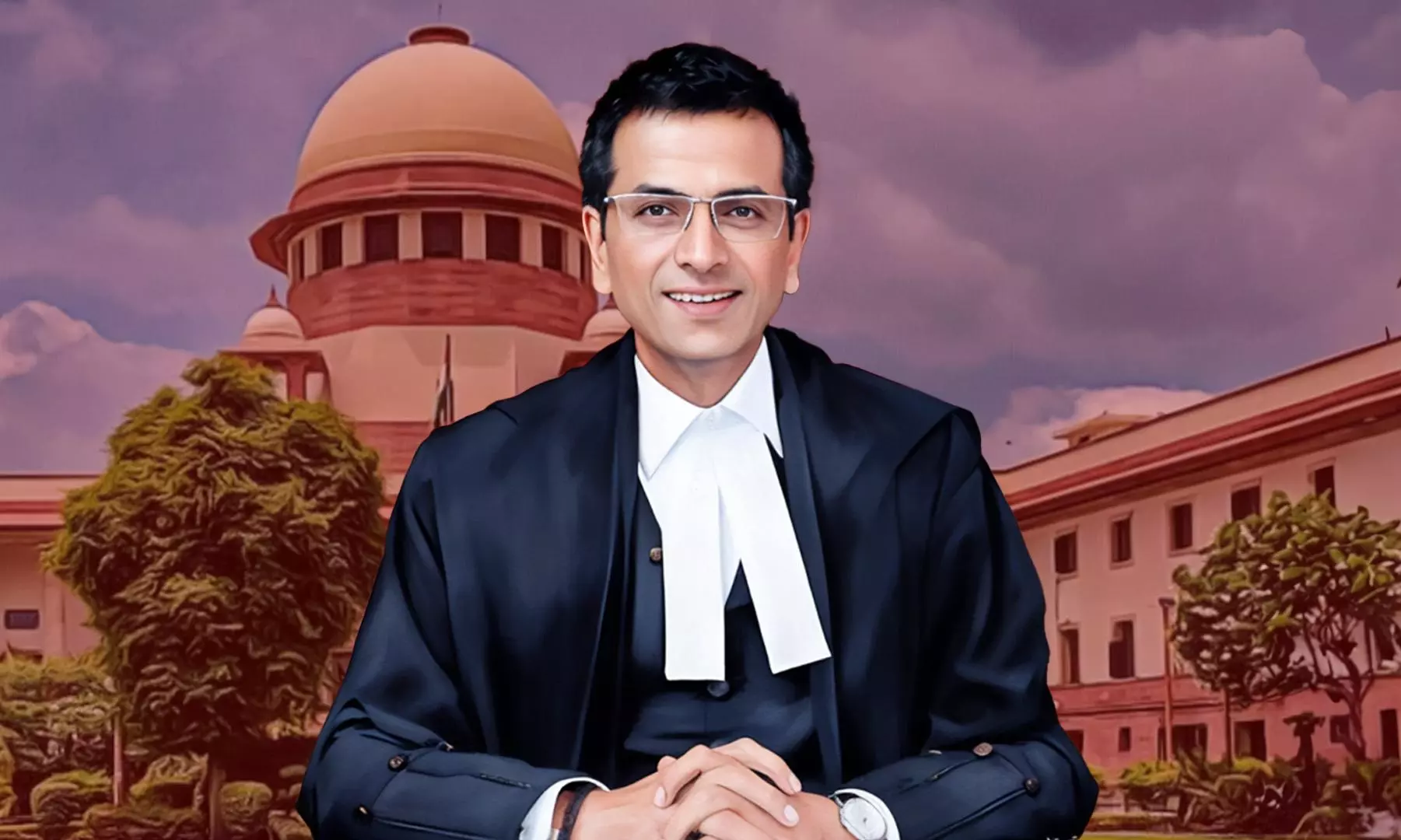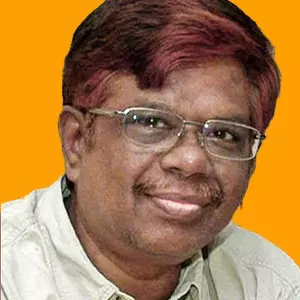
- Home
- India
- World
- Premium
- THE FEDERAL SPECIAL
- Analysis
- States
- Perspective
- Videos
- Sports
- Education
- Entertainment
- Elections
- Features
- Health
- Business
- Series
- In memoriam: Sheikh Mujibur Rahman
- Bishnoi's Men
- NEET TANGLE
- Economy Series
- Earth Day
- Kashmir’s Frozen Turbulence
- India@75
- The legend of Ramjanmabhoomi
- Liberalisation@30
- How to tame a dragon
- Celebrating biodiversity
- Farm Matters
- 50 days of solitude
- Bringing Migrants Home
- Budget 2020
- Jharkhand Votes
- The Federal Investigates
- The Federal Impact
- Vanishing Sand
- Gandhi @ 150
- Andhra Today
- Field report
- Operation Gulmarg
- Pandemic @1 Mn in India
- The Federal Year-End
- The Zero Year
- Science
- Brand studio
- Newsletter
- Elections 2024
- Events
- Home
- IndiaIndia
- World
- Analysis
- StatesStates
- PerspectivePerspective
- VideosVideos
- Sports
- Education
- Entertainment
- ElectionsElections
- Features
- Health
- BusinessBusiness
- Premium
- Loading...
Premium - Events

The CJI delivered numerous lectures worldwide but there is a world of difference between what he exhorted before the academic community and what he did as a judge
“We are here as pilgrims, birds for short passage of time…. but our work can leave a mark.”
These were the parting shots of the 50th Chief Justice of India, Dhananjay Chandrachud, on the last working day from his office. He held the office of the judge of the high court and Supreme Court for about two-and-a half decades. His father, Yeshwant Chandrachud, held the office of judgeship in the Supreme Court for over 15 years, including seven years as Chief Justice, the longest tenure anyone had in India.
Also read: No greater feeling than serving those in need: Outgoing CJI D Y Chandrachud
Thus, the father and son held offices of higher judiciary for close to 40 years together. Therefore, it may not fit in his case when he said that it was a short passage of time in office.
Difference in words and deed
A few days ago, Dhananjay Chandrachud said his mind has been heavily preoccupied with fears and anxieties about the future and the past. He was pondering over questions such as how history will judge his tenure.
One, as a judge, he will always be evaluated by the judgments he delivered. To his credit, he delivered 597 judgments and many of them were speaking for the constitutional benches.
He has also delivered numerous academic lectures in universities and law schools all over the world. But there is a world of difference between what he exhorted before the academic community and what he did as a judge.
Watch | Justice Chandrachud's final message as CJI
While in the UK, when he was questioned about the happenings in India, he stonewalled embarrassing questions and escaped cleverly by stating that he could not answer many of them as they were part of litigations pending before him.
Unlike the father
The question is whether he answered those questions in the litigations he disposed of during his tenure of eight years in the Supreme Court, including two years as the head of the judiciary, one of the powerful organs created by the Constitution.
Can he boldly say “La historia me absolvera” (the Spanish equivalent of “history will absolve me”) as said by Fidel Castro while defending himself in the Moncada Barracks in Cuba? The answer will be an emphatic “no”.
Although some jurists have described his tenure as a liberal one, in crucial matters he belied our hopes. When he led the judicial mind in areas of privacy, sexual preferences, and electoral corruption in the form of bonds, there were lingering hopes among many that at last we have someone who can think along different lines.
Also read | Justice Ramana’s rise to CJI post despite chequered legal history
He proved he was not his father’s son with his famous observation in defending the privacy right (Puttaswamy, 2017) in the Aadhaar Card case. He held as unconstitutional the decision by a Constitution Bench headed by his father (YV Chandrachud) in the mid-1970s in the infamous ADM Jabalpur case, which held that in view of the Emergency, the court’s doors were ajar for litigants seeking to enforce their fundamental rights. Therefore, while the father upheld the government’s rights, the son upheld the individual’s rights.
Injustice to Jammu and Kashmir
When he ruled that by labelling a legislation as a money bill, the ruling party cannot bypass the Rajya Sabha, where its majority was in doubt, as a colourable exercise of power, one really thought that he attempted to establish the notions of federalism and the constitutional democracy.
But all that went in vain when he granted the seal of approval for the abolition of special status to the state of Jammu and Kashmir conferred under Article 370, that too by a mere resolution and not a constitutional amendment. More crucial was a holding that the opinion of the Jammu and Kashmir Assembly could be exercised by some other authority.
While the “sin” of unnatural sex under the penal code was decriminalised, one would have thought that the Supreme Court had really taken the issue of sex preference seriously and removed the colonial mindset. The joy was short-lived when Dhananjay Chandrachud heading a bench refused to take a logical follow-up of holding same sex marriage as legal.
Also read: What Justices Nagarathna, Dhulia said about CJI's remarks on Justice Krishna Iyer
Ram Mandir: Justice derailed
Even on the question of holding electoral bonds released by the State Bank of India as illegal and political parties receiving funds in this manner can never be permitted, the bench did not go to the logical end of appropriating the money transfer and take it back from the political parties.
Thus, it was a case of an operation being successful, but the patient being dead.
The greatest blunder is the permission granted to build a Ram Mandir at the place where the 16th-century Babri Masjid existed and was demolished illegally by the Sangh Parivar.
A five-judge bench headed by Chief Justice Ranjan Gogoi, which included Dhananjay Chandrachud, held “the destruction of the mosque and the obliteration of the Islamic structure was an egregious violation of the rule of law”.
Chandrachud and God’s will
But nevertheless, the decision went in favour of the temple construction at the same venue based on the notion of majority opinion having proved that prayers were continued in that site for over 500 years. Thus, a new rule of law (thumb rule) was evolved.
The five-judge bench's decision, though, was unanimous but remained anonymous until Chandrachud revealed that unable to make up his mind, it was his prayer to God which showed the light to write the order.
Thus, the authorship of the judgment became known, though it was guessed correctly even earlier by many who were familiar with his writings. It is not relevant as to who wrote it but the revelation that his prayer to God guided the order will be seen as an affront to judiciaries’ functioning. More relevant is that God himself was a party to the litigation and the very same God succeeded too.
Also read | Real-life Jai Bhim hero K Chandru pens a tell-all memoir
Good bye, Chandrachud!
Only last month, in Pakistan, a sitting judge of the Supreme Court refused to participate in the farewell address given to the retiring Chief Justice. The media quoted him: “Justice Shah expressed (the view) that the current situation surrounding Chief Justice Isa is equally troubling, criticizing him for allegedly failing to safeguard judicial independence. He claimed that instead of mitigating external interference, the Chief Justice has permitted it to infiltrate the judiciary, thereby compromising its authority.”
We should be happy that such things did not happen in our country. We are always courteous, especially to the parting ones. Good bye, Justice C!
(The Federal seeks to present views and opinions from all sides of the spectrum. The information, ideas or opinions in the articles are of the author and do not necessarily reflect the views of The Federal.)


